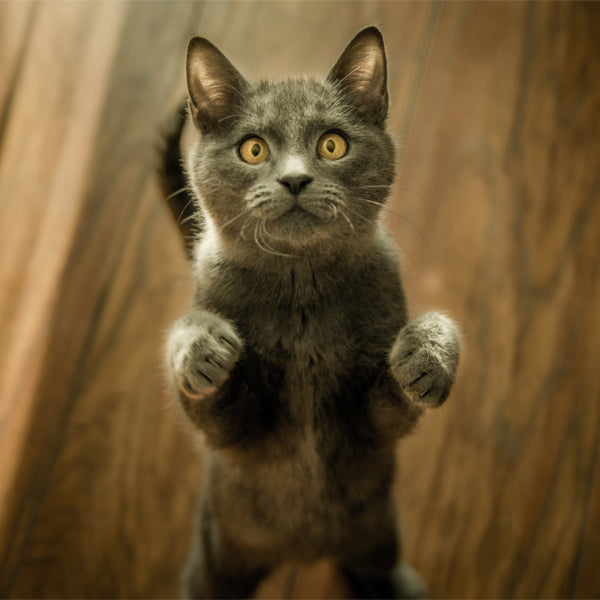
Indoor cats Vs Outdoor cats
Share
There is a long-standing debate on whether house cats should be allowed to go outside or raised inside the house fully. Taking an informed position on this is not entirely possible without knowing enough about the two situations. Let us see how the lives of cats differ, depending upon whether they are kept indoors or have access to outdoors.
-
Indoor cats live longer:The lifespan of an indoor cat tends to be longer as it is protected from external factors like bad weather, other predatory animals, road accidents, etc. The outdoor cat has to be cautious and street smart to survive the harsh conditions outside.
-
Outdoor cats are happier: Outdoor cats are generally considered to be happier as they have access to nature, as opposed to the indoor cat, which can only look at nature outside from a window. Outdoor cats play, catch birds, climb trees and do all the cat things that indoor cats don’t get to do. Remember, although domesticated, all cats are predators. And they need to hunt or at least play hunt their toys.
-
Indoor cats are dependent on their owners: Indoor cats depend on their humans for everything including food, litter, emotional support. Although cats are independent animals, the indoor cat tends to be more reliant upon the pet parent, not only for food, but also affection and attention. Their world revolves around you, your daily routine and the space you give them. Their view is all but the balcony of your home.

-
Outdoor cats are more independent: Your indoor/outdoor cat or the neighbourhood cat you feed is not solely dependent on you for food. He has other ways to find food, like hunting and catching other small animals. There may also be other humans who feed him.

-
Indoor cats are healthy: Your indoor kitty rarely risks contracting a viral or bacterial infection as his communication with the outside world is limited and monitored by you. He doesn’t come in touch with other infected animals outside. As a result, indoor cats are healthier and live longer.
-
Outdoor cats develop a strong immunity: Although outdoor cats may come in contact with other infected animals, they develop a strong immunity because of the outside conditions. An indoor cat has a rather poor survival chance if left outdoor, compared to the cat who frequently venture outdoors.

-
Indoor cats may get lonely and depressed: Indoor cats, although physically healthier, may get lazy and even depressed, when left alone, indoors, for long hours. Cats are hunter-gatherers, they need stimuli to run, jump, prey upon. They are highly skilled predators who can hear very high frequency chattering of rats, mice, etc. They also have highly superior olfactory sense, far superior even to dogs. If a cat doesn’t have much to do and has a steady supply of food, it may become lazy and slowly lose interest in its surroundings.
-
Outdoor cats may not return for days or weeks or even longer: An outdoor cat has several interesting activities to participate in, besides hunt for food. It can be a part of a pack and may go away for many, many days. Sometimes, unneutered cats leave in the pursuit of a mate and don’t return for weeks. There have been instances of cats returning years after being lost.
-
Indoor cats may grow obese or overweight: If your cat is an indoor cat, it’s important to check his diet. A lot of times, we keep feeding our cats without understanding how much we are supposed to feed them. Indoor cats with the lack of activity and overfeeding tend to get overweight, which has its own set of complications.
-
Outdoor cats live a risky life: A large number of outdoor cats have come under cars and lost their lives. Cats prefer living in a shade and many cats curl up under cars. They are also hit by cars while crossing roads. Besides that, if you live in a wooded area which has wild animals, it’s not safe for a cat to be outdoors at night. Besides cars and wild animals, outdoor cats are also vulnerable to poisoning, viral/bacterial diseases, flea infestation etc. Cats may also get locked in spaces like garages, factories, abandoned houses etc.





